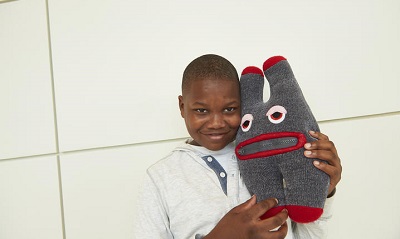DISCLAIMER
The information and materials accessed through or made available for use on any of our Sites, including, any information about diseases, conditions, treatments, or medicines, are for informational purposes only. The Content is not intended to be and is not a substitute for professional medical advice, diagnosis, or treatment, and your participation on our Sites does not create a healthcare professional-patient relationship. You should consult a doctor or other qualified health care professional regarding any questions you have about your health or before making any decisions related to your health or wellness. Call your doctor or 911 immediately if you think you may have a medical emergency.compose your message
message sent
email sent successfully
Trusted Resources: News & Events
Latest announcements and gatherings
The Cellie Coping Kit helps sick kids manage the stress of treatment
Designed by Marsac during her fellowship at Children’s Hospital of Philadelphia, the Cellie Coping Kit was developed for children ages 6-12, and includes of a plush toy named Cellie, a deck of cards with coping and communication techniques, and a book for caregivers. The first Cellie kit was geared toward children with cancer, but has since been adapted for children with sickle cell disease, traumatic injuries, and food allergies. A kit for eosinophilic esophagitis, an allergy condition that causes inflammation of the esophagus, is in the works, as is a kit for the siblings of children with illness or disability.
The kit is designed not only to comfort children during their illness, but also to provide them with the tools they need to understand their treatment and communicate their feelings. The coping cards address various “stressors” children can face, from procedures (e.g. needle sticks), to emotional stress (anxiety and sadness), to side effects of treatment (nausea, hair loss).

 +myBinder
+myBinderRelated Content
-
Community CenterFind Patient Assistance With FundFinder, The Patient Access Network (PAN) FoundationAre you tired of monitoring the status o...
-
news & eventsYoung Sickle Cell Patients Who Don’t Take Medication Have Lower Quality of LifeAdolescents and young adults with sickle...
-
people & placesMichael Rutledge Debaun, MDMichael R. DeBaun is the professor of Pe...
-
education & researchDisability evaluation under social security (hematological disorders – childhood)A. What hematological disorders do we ev...
-
people & placesPatrick C. Hines, MD, PhDPatrick C. Hines, MD, PhD is an experien...
-
education & researchA Comparison of an Individualized and Weight-Based Opioid Protocols for the Treatment of Vaso-Occlusive Episodes in ...Introduction: Vaso-occlusive episodes ar...
-
news & eventsBoston public schools agree to recognize sickle cell disease as disabilityThe Boston school system has agreed to r...
send a message
To improve your experience on this site, we use cookies. This includes cookies essential for the basic functioning of our website, cookies for analytics purposes, and cookies enabling us to personalize site content. By clicking on 'Accept' or any content on this site, you agree that cookies can be placed. You may adjust your browser's cookie settings to suit your preferences. More Information
The cookie settings on this website are set to "allow cookies" to give you the best browsing experience possible. If you continue to use this website without changing your cookie settings or you click "Accept" below then you are consenting to this.
Support for this site is provided by

This platform is made possible through a partnership with the Sickle Cell Disease Association of America, Inc. (SCDAA) and its member organizations. SCDAA's mission is to advocate for people affected by sickle cell conditions and empower community-based organizations to maximize quality of life and raise public consciousness while advancing the search for a universal cure.




